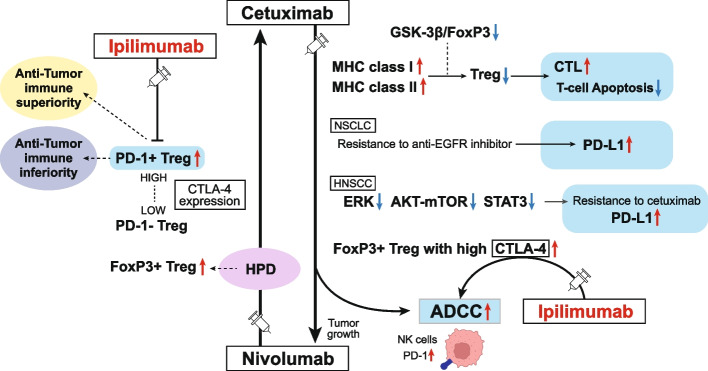Fig. 5.
TME modulation by cetuximab and nivolumab and the potential breakthrough treatment strategy using ipilimumab for HPD. Inhibiting EGFR modulates the tumor immune microenvironment in several ways, including enhancing MHC class I and II expression, decreasing the suppressive function of Tregs, promoting CTL activity, and reducing T cell apoptosis. PD-1 blockade may facilitate the proliferation of highly suppressive PD-1 + effector Treg cells in HPDs, resulting in the inhibition of antitumor immunity. Highly activated tumor-infiltrating PD-1 + effector Treg cells show higher CTLA-4 expression levels than PD-1- effector Treg cells. As the PD-1 blockade significantly enhances Treg cell suppressive activity, PD-1 blockade facilitates the proliferation of highly suppressive PD-1 + effector Treg cells expressing high CTLA-4 in HPDs, resulting in immunosuppression in HNSCC. Moreover, cetuximab treatment increases the FoxP3 + intratumoral effector Tregs expressing CTLA-4, suggesting the combination with ipilimumab restores the cytolytic functions of NK cells mediating ADCC. Targeting CTLA-4 high PD-1 effector Tregs for HNSCC may show a high response to the tumor and improve survival

